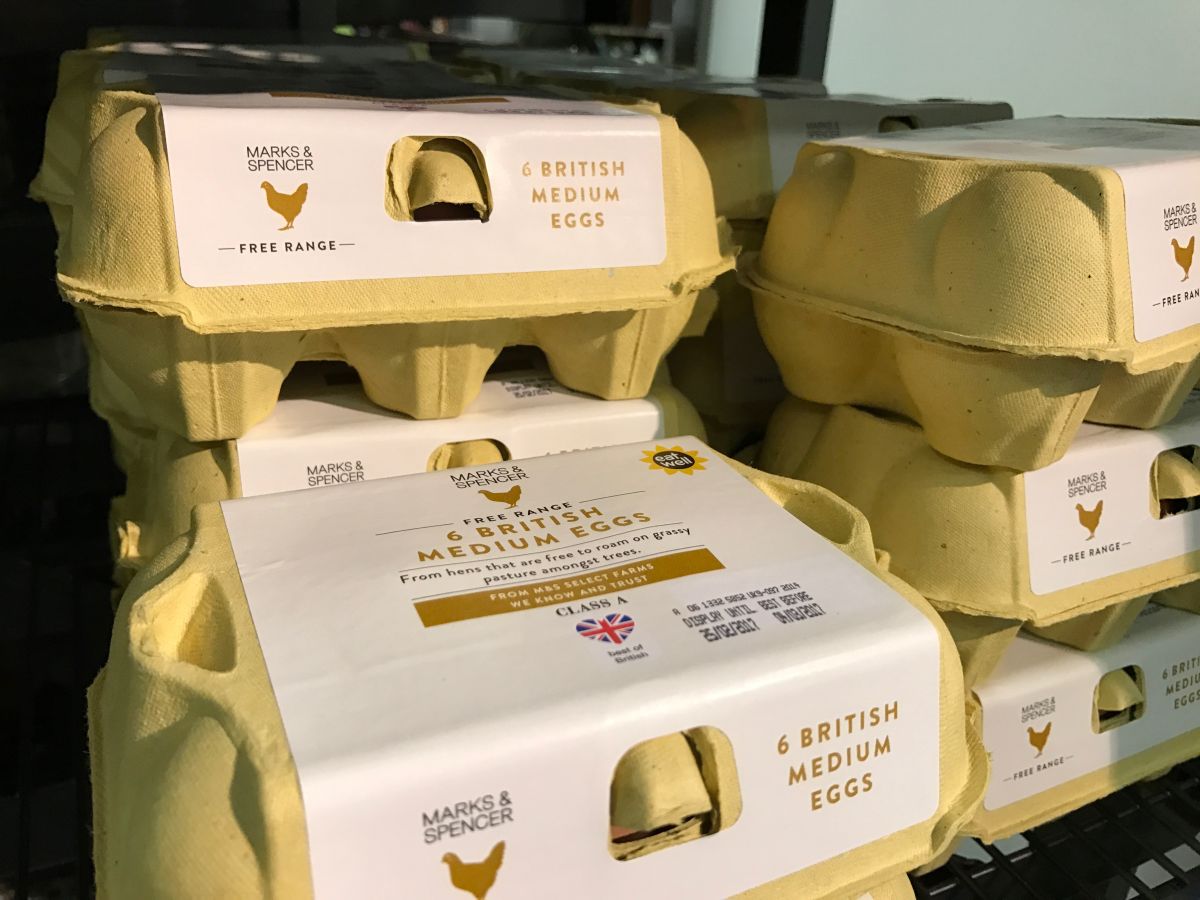
Retailers are expecting a shortage of two million free range eggs on 1st March after the housing order expires on the 28th of February.
The Government is lifting the housing restrictions for some free range farmers in areas they deem to be low risk.
Other areas deemed high risk are to remain housed and will be downgraded to barn or colony depending on demand.
It is feared this will create a shortfall of two million free range eggs a day.
The poultry industry says it will put pressure on the price of both barn and colony egg prices as free range eggs are cascaded down into their categories.
To allow the marketing of eggs as free range, a producer now faces a race against time to put in place previously unthinkable measures to secure the marketing status of their product.
High Risk and Low Risk
On 8th February, based on advice from Chief Veterinary Office Nigel Gibbens, DEFRA issued an update on the biosecurity measures to all poultry keepers in England, splitting the country into High and Higher Risk Areas.
For the 75% in the Low Risk Areas (LRA), the expectations are that, by the end of February, a producer wishing to maintain free range status needs to either put in place supervision of the range, or cover the entire area with netting.
For the significant minority in a Higher Risk Area (HRA), birds may only be released outside on 1st March if the range is covered with netting.
Those in the High Risk areas have condemned the Government, as 25% of English free range production stems from these areas.
Scotland does it differently
The Scottish Government has so far issued different advice to deter wild birds from ranges. They have not introduced areas of greater risk and no netting requirements.
If, as is expected, the Welsh and Northern Irish administrations follow this lead, English free range producers will fear an enormous disadvantage.
English poultry farmers have asked for a more 'common sense' approach in DEFRA. A plan which is more consistent across the UK's devolved powers.
Roughly 2m eggs per day from housed HRA flocks compete in what farmers describe as an 'already desperate' Barn market.
Come 2025, with many predicting the foretold end of colony cage era in supermarkets, Barn may have a more prominent foothold on the shelf.
But today, it accounts for only 3.6% of annual volume and is declining by 20% year on year.
Supermarket sales total 2.2m Barn eggs per week, and the forecasted cascade could match that volume every day.
Egg packers have been left wondering if they will be able to afford to pay Free Range prices for eggs falling into the Colony market.
Supermarket loyalty
Supermarkets to date have stood foursquare behind their suppliers.
Fears of opportunism under the guise of ‘giving the consumer what they’re paying for’ have been widely regarded as being misplaced.
However, this was at a time where all birds were housed. Now poultry farmers face division, the question that is being widely asked is will the supermarkets’ loyalty hold firm?
There are high street names that promote their relationship with farming as part of their corporate responsibilities.
Farmers are being left to wonder if they will see this reflected in the approach to supporting farms caught on the wrong side of the CVO’s post code lottery.
Farmers are being expected to see a corporate game of hot potato, with the packers asked to redirect the temporarily housed product to ‘anybody else but us’.
Egg box labelling
The labelling of egg boxes with explanatory reference to housing orders has not been applied consistently across the trade, with some retailers already applying notices before the end of the derogation.
Come 1st March, Scottish, Northern Irish, and perhaps Welsh sourced eggs will not require labels.
Packers have said they want to avoid the on-cost of extra labour and packaging, while others will have a choice – persuade the retailers to accept all cartons with a label, or deal with the complexity of applying roundels only to housed flocks.
It is feared that consumers might react negatively when the shelf offers packs with and without the label. A distorting effect on sales and wastage is feared by retailers.
The underlying health of the market is deemed to be well, with top line consumption in strong growth, and supply well balanced with demand.
Producer price disruption
Producer price disruption now could be very damaging to this equation.
With publicised egg price reductions and feed price inflation in the last year, the fragile situation can be appreciated by the wider supply chain and the longer term crisis that the Governments’ widely-flouted 'divisive policies' has encouraged could be avoided.
Farmers have left wondering if the policies can be changed in time for 1st March.
Managing the risk of bird flu is going to be a much greater burden on the Free Range industry in the future than it has been in the past, farmers have said.
Overall, the industry wants solutions to be found that deliver for all; the hens, the environment, the free range consumer and the taxpayer.
